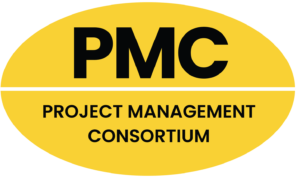Consultants in the construction industry provide guidance to their clients about the selection of a general contractor for a project, as well as the selection of a partner to collaborate with in the event that material purchases are required.
During the course of the procurement process, the consultant will often consider bids from one or more material suppliers and will base their selection on the quality of the material as well as the economic feasibility of the option.
Let’s talk about the primary roles and duties that consultants have in the construction industry:
How does a civil engineer provide consulting services to clients?
A consulting engineer or construction consultant is an independent professional engineer who works for a client on a fee-for-service basis to provide high-quality, in-depth engineering services.
Consultants’ role in the construction industry
These services are provided to customers in return for payment. Registration in the jurisdiction in which the consulting engineer’s clientele is situated is one of the requirements for a Professional Engineer’s license held by a consulting engineer.
The services offered by a consulting engineer are not limited to serving just a certain demographic of customers; rather, they also provide industry-typical cuisine. It is essential that the suggestions of the consulting engineer be provided without any bias.
Characteristics of a Consultant:
The job of a consulting engineer is improved not only by the engineer’s familiarity in the field in which he works, but also by the myriad of other abilities he brings to the table. The following are some examples:
Knowledge of current business and financial best practices, with a strong emphasis on recent updates.
In order to keep up a positive morale, you need to have excellent interpersonal skills and a strategy that emphasizes teamwork.
Having the kind of leadership skills that are required to influence consumers via the use of data.
Excellent command of a language other than one’s native tongue, particularly for the purpose of interacting with customers in their mother tongue.
Maintaining the integrity of the delivery materials by refusing to accept any commissions.
The following skills are required of a construction consultant:
However, if you bring in a consultant at the very beginning of the project, you may be able to avoid making some serious errors.
In the event that a property is purchased with the intention of constructing a building on it, but subsequent soil testing reveals that the location is unsuitable for the loads that will be placed on it and requires a certain kind of foundation.
If an expert had been contacted prior to the purchase of the site, more funds might have been conserved for the construction of a foundation that was tailored to the specific needs of the building.
A construction consultant’s tasks include: –
1. Consultation
Consultation refers to the process of seeking the guidance and direction of an experienced civil engineering consultant on a difficult and intricate matter of technical concern.
This might take a longer or shorter amount of time, depending on how urgent the matter at hand is.
The consultation might take place over a little amount of time, continue for a longer amount of time, or include a significant amount of travel to the location in question. In case you need any assistance with your work, mlm consultants are the best choice, since they are widely used worldwide.
2. Investigating the cause of the problem
It is possible that engineering calculations will be included in the construction consultant’s investigation of the problem on the project site. Additionally, some consultants may need to go to the job site in order to inspect the building and the equipment inside it.
The work that the client’s management and engineers have done in the preparation of reports and the execution of investigations should also be evaluated by the consultants.
3. Analyses of the Situation
These papers, which document the results of survey and engineering studies undertaken around the site, are an extremely important factor in determining whether the project will be successful. These analyses are necessary for a number of reasons, one of which is to guarantee that the technological solution selected is compatible with the viable financial future of the building.
In the feasibility study, the requirements and specific demands of the project, as well as the anticipated construction cost, alternative solution, expert suggestion, and findings, are all taken into consideration.
4. Detailed specifications and drafts
This category includes things like the dimensions of the building in issue, as well as other features of its physical makeup.
The blueprint is a drawing that details the dimensions of the structure to be constructed. In addition to the blueprints, there are also written papers known as specifications that provide additional detail. You may also be interested in How to nail your initial interior design consultation.
Before providing instructions to the contractor regarding how to move forward with the project, the consultant examines the plans and specifications in great detail.
It is common practice to compile the bill of quantizes, also known as the list of materials required to get construction started, as part of the design phase.












 The 2024 virtual Men’s Round Table will be held Q4, 2024, date TBD.
The 2024 virtual Men’s Round Table will be held Q4, 2024, date TBD.













